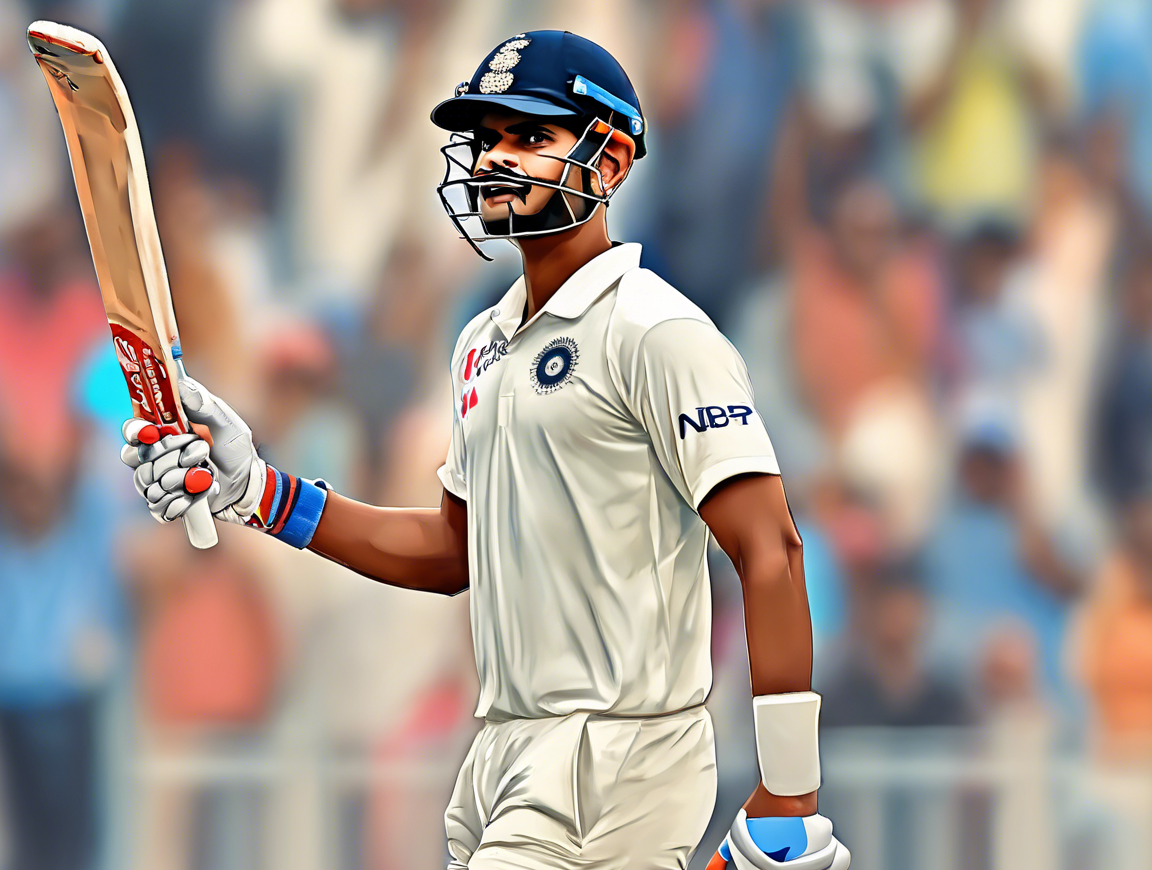Introduction
Sports fans were left in awe as cricketer Shreyas Iyer showcased his skills beyond batting and fielding during a recent match. The Delhi Capitals captain displayed remarkable umpiring skills that caught the attention of viewers worldwide. This unexpected turn of events not only entertained the audience but also shed light on the intricate role of umpires in sports. Let’s delve deeper into this fascinating incident and explore the importance of umpiring skills in the world of cricket.
The Incident
During a crucial match, an on-field umpire was forced to leave the field due to injury, leading to a temporary void in officiating. Quick to react, Shreyas Iyer volunteered to step in as the replacement umpire, showcasing his versatile capabilities. The cricketer seamlessly transitioned into the role, making accurate decisions, handling player queries, and ensuring a smooth continuation of the game. His umpiring skills were so impressive that they earned praise from fans, commentators, and fellow players.
The Significance of Umpiring Skills
Umpiring is a vital aspect of any sport, playing a significant role in upholding fairness, enforcing rules, and maintaining the integrity of the game. Umpiring skills encompass a wide range of abilities, including decision-making, communication, attentiveness, and composure under pressure. A good umpire must possess a thorough understanding of the game, a keen eye for detail, and the ability to remain unbiased in their judgments. Shreyas Iyer’s impromptu display of umpiring skills highlighted the importance of this often-overlooked aspect of sports.
Key Attributes of a Good Umpire
1. Knowledge of the Rules: A good umpire must have a deep understanding of the rules and regulations of the sport.
2. Decision-making Ability: Quick and accurate decision-making is crucial for an umpire to maintain the flow of the game.
3. Communication Skills: Clear and effective communication with players, fellow officials, and spectators is essential.
4. Impartiality: An umpire must remain impartial and unbiased, regardless of the teams or players involved.
5. Consistency: Consistent application of the rules ensures fairness and equality for all participants.
6. Resilience: Umpires often face scrutiny and criticism, requiring resilience and a strong mindset to perform their duties effectively.
7. Attention to Detail: From no-balls to boundaries, an umpire must pay close attention to every aspect of the game to make accurate decisions.
The Impact of Shreyas Iyer’s Actions
Shreyas Iyer’s impromptu umpiring skills not only entertained the audience but also served as a reminder of the versatility and sportsmanship displayed by athletes. By stepping into the role of an umpire, Iyer showcased his respect for the game, his teammates, and the spirit of sportsmanship. This incident highlighted the multifaceted nature of professional athletes and the importance of understanding all aspects of the game, including officiating.
Frequently Asked Questions (FAQs)
- Can a player become an umpire during a match if needed?
-
In exceptional circumstances, a player can step in as an umpire if an official is unable to continue due to injury or other reasons.
-
What are the qualifications required to become a professional cricket umpire?
-
To become a professional cricket umpire, individuals need to undergo training, pass exams, and gain experience officiating matches at various levels.
-
How do umpires communicate with each other during a match?
-
Umpires often use hand signals, earpieces, and verbal communication to coordinate decisions and ensure consistency in officiating.
-
What is the role of the third umpire in modern cricket?
-
The third umpire reviews close decisions using technology to assist the on-field umpires in making accurate determinations, especially in cases of run-outs and stumpings.
-
How do umpires handle conflicts between players on the field?
- Umpires are responsible for diffusing conflicts, enforcing the code of conduct, and maintaining discipline among players to ensure a fair and respectful playing environment.
In conclusion, Shreyas Iyer’s demonstration of umpiring skills not only added a unique touch to the match but also highlighted the importance of officiating in sports. Umpires play a crucial role in ensuring fair play, upholding rules, and maintaining the integrity of competitive events. This incident serves as a reminder of the diverse talents and sportsmanship displayed by athletes both on and off the field.




